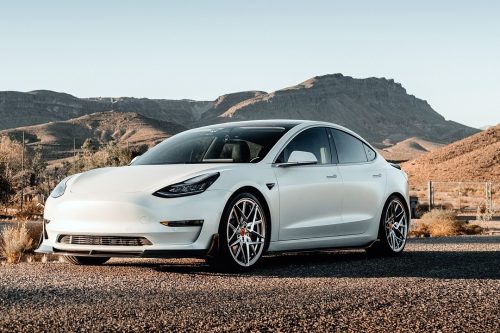
You’ve likely seen the news that Hertz is selling off 20,000 Tesla vehicles (around 1/3 of their EV stock).
We thought it might help to give more background on what this means for electrification. The EC partnered with Enterprise on a project in Orlando and we learned a lot about the unique use case and business models for rental fleets.
Residual value (a projected estimate of value at the disposition):
A lot of factors impact the residual values of vehicles (market fluctuations, interest rates, supply availability, technology improvements year to year). For most consumers and large light-duty fleets, the lowering costs for EVs is good for adoption and electrification but can it can impact residual value for used EVs. This can have a bigger impact on a business that buys and sells a lot of cars and only keeps them for a short period of time. With growing market competition, increased manufacturing capacity, and new incentives, Hertz was kind of caught in a bit of a market shift. Again, continued dropping of costs is good for consumers and likely other fleets. Plus, EVs really demonstrate their operational savings over a longer ownership period (electricity is cheaper and price stable on a per-mile cost).
Damages/collisions/repairs:
Many rental companies are self-insured, so the risk and impact of collisions are different than for a consumer or other fleets with traditional insurance. Additionally, there have been several studies on repair costs, and the average is about $200 more for an EV than a gas car. Because some are still earlier in the market, parts might be less available (less competition) and in some locations, there might be less available trained technicians available. Costs should decrease over time. Companies are still scaling service capacity, and the availability of parts for certain manufacturers (Tesla, for example) currently have a higher average repair cost. Repairs for most consumers will be under warranty or covered by insurance, making the impact more of an inconvenience than a big cost factor. It’s another lesson learned for rental cars and one that will become less of an issue as manufacturing and servicing scales.
A few additional highlights:
- EVs can work really well in the rental space, but it will have some challenges (including the need for good training for staff and access to charging) and it will take some good planning to get it right.
- The business model for the rental space has some unique characteristics—they need really high utilization (the car is rented), and the industry buys and sells a massive number of cars on an annual basis, so the residual value can be really important.
- Operating costs, particularly collision/damage repairs, as we see with Hertz, can be really disruptive, especially if some manufacturers are still working on expanding their servicing ability.
- Renters (consumers) will need some tips and tools to find chargers. There are great resources to show where and what types of chargers are available, including PlugShare, Google Maps, the DOE, and some of the charging companies that have good apps.
EVs are working for public and private fleets and millions of consumers. With electrification accelerating around the world and in the US—growing sales, increasing model options from every manufacturer, and new charging stations launching every day—it’s become easier and cheaper to go electric. However, the transition to electric is not without its challenges, especially in some specific sectors.
We need to accelerate the electrification of rental cars (and, of course, their major end users in the rideshare space), and while there might be some early bumps in the road and lessons learned—especially in some sectors—demand for EVs is strong.
The Electrification Coalition provides technical assistance to dozens of companies that are having a positive experience shifting to electric cars, trucks, and buses. We can serve as a valued resource for others looking to electrify. Please reach out to us for assistance!
